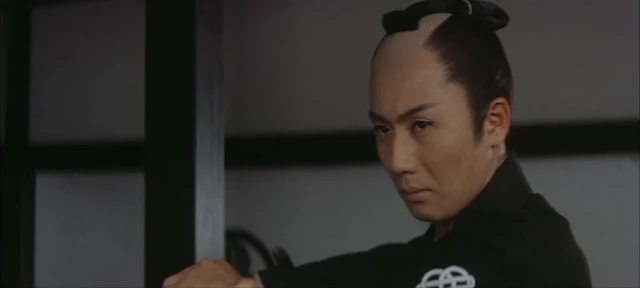 |
| Adolphe Menjou and Barbara Stanwyck in Forbidden |
Cast: Barbara Stanwyck, Adolphe Menjou, Ralph Bellamy, Dorothy Peterson, Thomas Jefferson, Myrna Fresholt, Charlotte Henry, Oliver Eckhardt. Screenplay: Frank Capra, Jo Swerling. Cinematography: Joseph Walker. Film editing: Maurice Wright.
If you can bring yourself to believe that Barbara Stanwyck's character would spend her life devoted to Adolphe Menjou's, you might like Forbidden. Its writer and director, Frank Capra, didn't, almost apologizing for it in his memoirs. Menjou was a fine character actor with a film career that stretched from 1916 to 1960, but he was no leading man. He was the guy you called on for suave but starchy, not for a lifetime of illicit passion. In Forbidden he's a lawyer and aspiring politician who meets Stanwyck's Lulu on a cruise to Havana. She's a librarian longing for romance, so she spends all her savings on that fateful cruise. They meet cute, of course: He's a little drunk and somehow mistakes her room, No. 66, for his, No. 99. Unfortunately, he's married (she doesn't know this till later) and unwilling to divorce his wife because she was seriously injured in an automobile accident he caused. But they keep seeing each other after they return to the States, she gets pregnant, and through a preposterous series of events winds up letting him and his wife adopt the child she gives birth to. Meanwhile, his political career takes off, although he has made an enemy of a newspaper editor (Ralph Bellamy), who just happens to be Lulu's boss and who wants to marry her. This elaborate contraption of a plot creaks and groans its way to a denouement that's as improbable as the rest of ir. If anything redeems the movie, it's Stanwyck's professionalism, her commitment to creating a character that's almost credible while you're watching her, but really doesn't when you think about it afterward. Capra also directs as if his story makes sense, which is no small feat.
.jpg)







